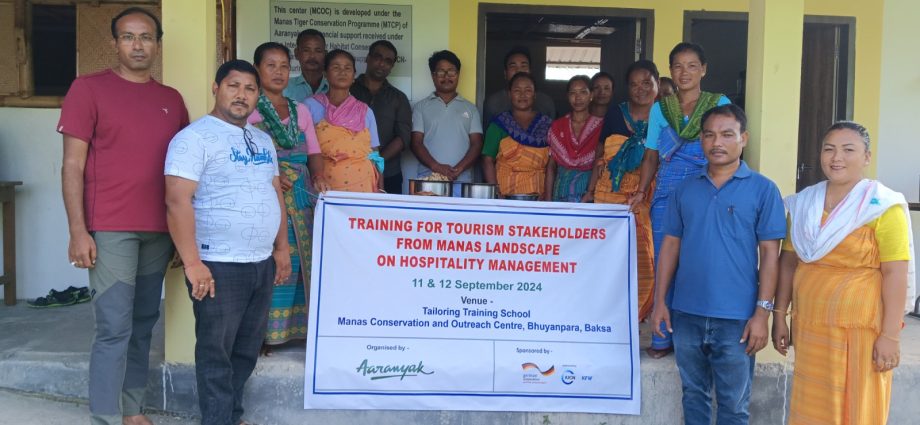Manas: A two-day training programme for homestay owners and all-women catering groups from Majrabari, Rangapani and Daodhara villages from Manas landscape was organised by Aaranyak on various aspects of hospitality management for tourism stakeholders.
The programme was organised at Aaranyak’s Manas Conservation and Outreach Centre, located at Bhuyanpara in Baksa on September 11 and 12. The key objectives of the training were to orient the stakeholders on the aspects of room management, kitchen management, approach for hospitality services to guests, sustainable cooking and maintenance of hygiene, preparing a proper meal and pricing of the food.
During the training, the participants were educated on the importance of cooking proper traditional and non-traditional delicacies for breakfast, lunch and dinner. The importance of serving traditional delicacies to guests and the presentation of the traditional lifestyle to them was also highlighted.
The participants actively cooked different traditional and non-traditional food items during the practical sessions. The participants were also taught on the basic aspects they need to keep in mind while making beds for the visitors and arranging guest rooms during the training.
Rahul Basumatary, a homestay owner from Rangapani, mentioned that this two-day programme helped him learn important aspects related to the process of managing and organising his homestay and he appreciated Aaranyak for taking the initiative to organise the training for the tourism stakeholders.
“Alternative livelihood practices, by communities residing near key wildlife habitats, allow the practitioners to augment their livelihood”, said Aaranyak in a press statement. “It also acts as an integral part of conservation initiatives by engaging these communities in various activities thereby minimising their tendency to rely on forests for basic needs and allowing them to earn a livelihood through alternative sources.,” it added.
Community-based nature tourism offers a scope to these forest-fringe communities to cater to nature enthusiasts by housing them in their residence and thereby supplement their income. However, most of these people lack a formal understanding of hospitality management, which limits them from catering to their guests properly.

